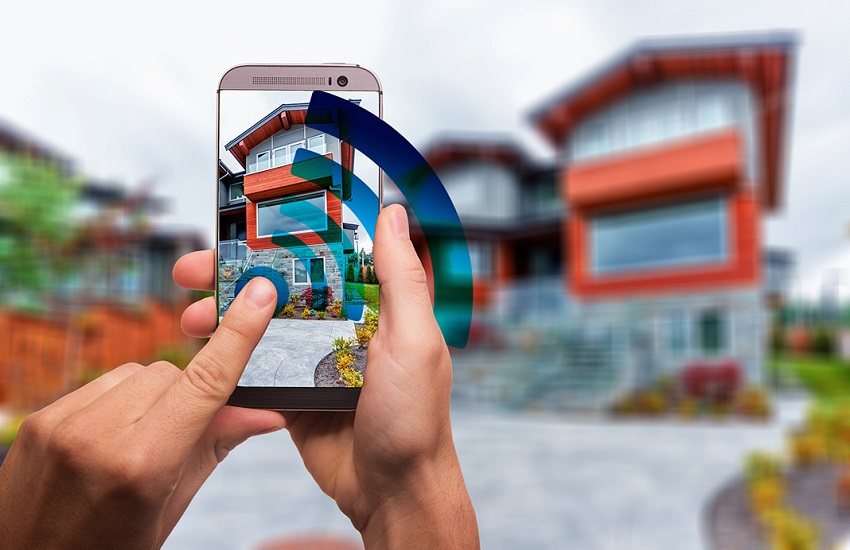The integration of smart home technology into rental properties is redefining how tenants interact with their living spaces. From enhanced convenience to improved security, these advancements are making homes more functional and appealing. For both landlords and tenants, smart technology is quickly becoming a key factor in the rental experience.
The Growing Popularity of Smart Home Technology
In recent years, smart devices have become a staple in modern households. These gadgets—ranging from thermostats and doorbells to lighting and appliances—offer unparalleled control and efficiency. For renters, the adoption of these technologies means more comfortable and connected living spaces.
Benefits for Renters
Smart home technology provides renters with features that simplify daily life and enhance their living environment. Some of the most significant benefits include:
- Energy Efficiency: Devices like smart thermostats and lighting systems allow tenants to reduce energy consumption by adjusting settings remotely. This not only helps the environment but also lowers utility bills.
- Convenience and Customization: With voice-activated systems or mobile apps, renters can easily control various aspects of their homes, such as adjusting lighting or unlocking doors. This level of customization adds a layer of comfort to their lifestyle.
- Enhanced Security: Smart locks, cameras, and alarm systems provide peace of mind for tenants. They can monitor their home’s security in real time, even when they are away.
Advantages for Property Owners
Landlords also reap numerous benefits from implementing smart technology in their rental properties. By doing so, they can attract high-quality tenants and improve operational efficiency.
Increased Property Value
Rental units equipped with smart home features stand out in a competitive market. These properties appeal to tech-savvy renters who are willing to pay a premium for modern conveniences.
Simplified Property Management
For landlords, smart devices streamline property management tasks. For instance, they can monitor energy usage, address maintenance issues, or grant access to repair personnel without being physically present.
Enhanced Security and Tenant Retention
By offering advanced security measures, landlords demonstrate a commitment to tenant safety, which fosters trust and long-term rentals.
Must-Have Smart Home Features for Rentals
While there are countless smart devices available, certain features are particularly well-suited for rental properties. These include:
Smart Locks and Keyless Entry
Gone are the days of misplaced keys. With smart locks, tenants can use codes or mobile apps to access their homes. These systems also allow landlords to easily change access codes between tenants.
Smart Thermostats
These devices help tenants maintain comfortable temperatures while optimizing energy use. They learn user habits and automatically adjust settings, providing both convenience and savings.
Smart Lighting
Tenants can control lighting remotely or program it to turn on and off at specific times. This feature not only conserves energy but also enhances home security.
Security Cameras
Indoor and outdoor smart cameras offer tenants an extra layer of protection. Some systems even allow for two-way communication, which is useful for screening visitors or deliveries.
Leak Detection Sensors
Water damage is a common issue in rental properties, but smart sensors can alert tenants and landlords to leaks before they become major problems.
Challenges of Implementing Smart Technology
While the benefits are clear, there are also challenges associated with integrating smart technology into rental properties.
Privacy Concerns
Tenants may worry about data security and surveillance. It’s crucial for landlords to be transparent about what systems are in place and how data is used.
Initial Costs
Installing smart devices requires an upfront investment. However, the long-term benefits often outweigh these costs, as they lead to increased property value and tenant satisfaction.
Compatibility Issues
Landlords need to ensure that smart devices are compatible with existing infrastructure and user-friendly for tenants. Regular maintenance and updates are also essential to avoid technical issues.
The Role of Technology in Rental Searches
Smart home technology isn’t just transforming rental properties—it’s also changing how people search for their next home. Renters are increasingly using online platforms to find listings that meet their tech-savvy needs. Platforms like zumper rentals offer a seamless way to find properties equipped with modern conveniences.
Looking Ahead: The Future of Smart Rentals
As technology continues to advance, the rental market will see even more innovations. Virtual reality tours, AI-powered property management tools, and fully automated homes are just a few possibilities on the horizon. These advancements will further enhance the rental experience for both tenants and landlords.
Conclusion
Smart home technology is undeniably transforming the way people rent and manage properties. From convenience and security to energy efficiency, these features add tremendous value to rental units. As the demand for smart-equipped homes grows, landlords and renters alike will need to adapt to this tech-driven evolution.
Whether you’re a landlord looking to modernize your property or a tenant searching for a high-tech home, the integration of smart technology offers countless benefits. It’s an exciting time for the rental market, with innovations reshaping the way we live.

